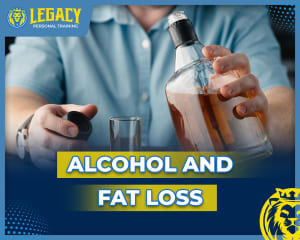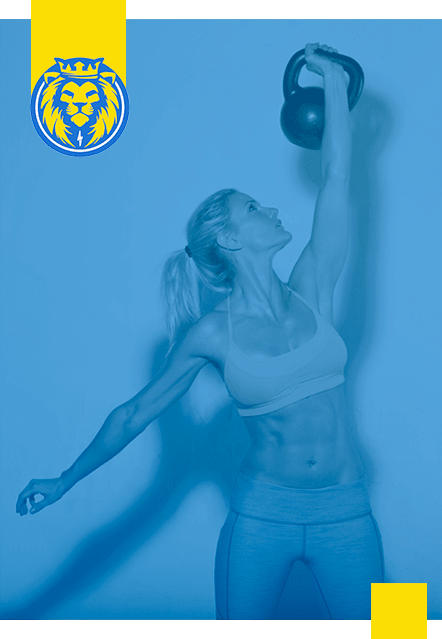
If you’re focused on improving your fitness, dialing in your nutrition, or losing body fat, chances are you’ve had to think about alcohol and whether it still has a place in your lifestyle. For many of our members here at Legacy Personal Training, this is one of the most common conversations we have—especially for adults over 40 who are navigating changes in metabolism, hormones, and recovery. You might have heard things like “a glass of red wine is heart-healthy,” or “everything in moderation,” or “a drink or two won’t hurt.” But new research shows that alcohol—no matter the type or amount—has zero proven health benefits and may be doing more harm than you think. In this article, we’ll break down what alcohol actually does to your brain, hormones, recovery, and fat loss potential. And if you do choose to drink, we’ll share how to do it smarter—so it doesn’t sabotage all your progress in the gym. This might surprise you, but alcohol is classified as a Group 1 carcinogen by the World Health Organization. That means it’s in the same category as smoking cigarettes and exposure to asbestos. That’s not fear mongering, it’s science. So while a glass of wine may feel harmless, your body processes it very differently. Unlike fat, carbs, or protein—which the body can store or use—alcohol is a toxin. It must be prioritized and metabolized immediately by the liver, which sets off a chain of negative effects throughout your body. Alcohol is a neurotoxin that crosses the blood-brain barrier and directly impacts brain function. It impairs memory, dulls focus, and over time, can shrink the hippocampus which is the area of the brain responsible for learning and emotions. Even moderate alcohol intake is shown to increase anxiety, worsen mood, and reduce the ability to manage stress when you’re not drinking. Think a nightcap helps you sleep? Think again. Alcohol disrupts your sleep architecture, particularly REM sleep. REM sleep is the deep, restorative phase critical for overall recovery, memory, and hormonal balance. Even one or two drinks can cause nighttime wakeups and poor-quality sleep, which in turn affects your workouts, energy, and food cravings the next day. Alcohol negatively impacts testosterone levels in men and can increase estrogen dominance in both men and women, which is especially problematic for women going through menopause. These hormonal changes can: Reduce muscle mass and strength Increase belly fat storage Decrease energy and libido Slow metabolism If you're struggling with stubborn fat and poor recovery, alcohol may be playing a bigger role than you think. Here’s one of the most critical pieces of the puzzle: Alcohol shuts down your body's ability to burn fat. When you consume alcohol, your liver prioritizes metabolizing it over anything else. That means any fat, carbs, or protein you’ve eaten is put on the back burner and often stored as fat while your body focuses on detoxing the alcohol. In short: you can’t burn fat efficiently while alcohol is still in your system. Alcohol is a diuretic, which means it increases fluid loss and depletes essential electrolytes and vitamins, particularly B vitamins, magnesium, and zinc. This affects everything from energy to recovery to immune health. You’ll also feel the effects in your workouts. Dehydration from alcohol can leave you weaker, stiffer, and more prone to cramping and injury. If you lift weights (as you should), alcohol can undo a lot of your hard work. Here’s how: It suppresses muscle protein synthesis, slowing down your ability to build muscle after workouts It increases inflammation, making it harder to recover between sessions It impairs coordination and motor control, raising your injury risk It reduces your power output and endurance even days after consumption In other words, if your goal is to get stronger and leaner, alcohol is pulling you in the opposite direction. We get it. Most of our clients still want to enjoy a drink occasionally. So here’s how to do it more strategically: Stick with unflavored, additive-free clear spirits like: Blanco tequila Vodka Gin These have fewer added sugars and chemicals than sweet cocktails or flavored liquors. Mix with soda water or fresh citrus instead of sugar-heavy mixers. Alcohol becomes most problematic when it’s habitual. Try to limit your intake to special occasions, and don’t let a glass of wine become your nightly ritual. Your liver, hormones, and waistline will thank you. Simple syrup, juices, and soda add extra sugar, calories, and inflammation. Keep it clean and simple. You can’t out-supplement a drinking habit, but if you are going to indulge, consider: Glutathione: Helps your liver detox alcohol NAC (N-Acetyl Cysteine): Supports glutathione production L-Cysteine: An amino acid that aids in alcohol breakdown Hydration and electrolytes: Crucial before, during, and after Still, none of these eliminate the downsides, they just help reduce the severity of the impact. Many clients at Legacy come to us frustrated. They’re training consistently, eating “well,” but still not seeing results. Often, alcohol is the hidden factor. Even one to two drinks a few nights a week can: Increase belly fat Worsen insulin sensitivity Spike cortisol Disrupt digestion and sleep Decrease your calorie-burning potential The truth is, alcohol and sustainable fat loss don’t mix well. That doesn’t mean you can never enjoy a drink again—it just means you need to be strategic, intentional, and honest about what you want most. If you find yourself reaching for a drink to unwind, consider healthier rituals: Herbal tea or sparkling water in a fancy glass An evening walk to decompress Journaling or reading Mindfulness or meditation practices It’s not just about the alcohol, it’s about the routine. If you can replace the habit with something that still gives you a sense of reward, you’ll find it easier to cut back without feeling deprived. We’re not here to tell you to quit drinking altogether. But we are here to educate you, support you, and help you make decisions that align with your goals. If your goals include: Losing body fat Building muscle Balancing hormones Feeling better and performing better Then cutting back on alcohol, even a little, can make a huge difference. And if you’re already putting in the effort with your workouts and nutrition, why let alcohol undo all of that hard work? At Legacy Personal Training, we help adults in North Scottsdale create fitness and nutrition plans that fit real life. We coach you through the habits, behaviors, and mindset shifts that lead to lasting results—even if that includes finding a better relationship with alcohol. 📍Legacy Personal Training proudly serves DC Ranch and the North Scottsdale community. 📅 Ready to stop letting small habits sabotage your big goals? Book a consultation today and let’s build a smarter, stronger, more sustainable path forward, together. Because your best years aren’t behind you. They’re waiting to be built, one strong decision at a time.What Alcohol Really Does to Your Fat Loss Goals
First Things First: Alcohol Is a Class 1 Carcinogen
How Alcohol Impacts Your Body and Fitness Goals
1. It Disrupts Brain Chemistry
2. It Impairs Sleep and Recovery
3. It Lowers Hormone Levels
4. It Blocks Fat Burning
5. It Dehydrates and Depletes Nutrients
The Impact on Strength Training and Muscle Growth
Smarter Strategies for Drinking
Choose Clear Liquor
Avoid Daily Drinking
Watch the Mixers
Supplement Support
Alcohol and Weight Loss: What the Science Shows
How to Break the Cycle
Final Thoughts: You’re in Control

